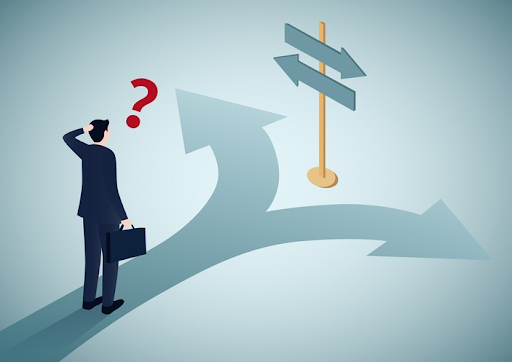
Rational vs. Intuitive Trading: How Psychology Impacts Making Investment Decisions
When it comes to making decisions, especially in investing, there's this constant tug-of-war between what we feel and what we know. It’s kind of like that moment when you're staring at a menu and you have no idea what you want, but then something catches your eye and you just “know” that’s the dish for you. That’s intuition. And sometimes, it’s spot on.
But then there’s that other voice, the one that likes to analyze, break things down, and stare at numbers until they make sense. That’s the rational side of things. If intuition is like following your gut, then rationality is the slow-and-steady process that lets you make sense of the chaos. Let’s face it: our minds are constantly trying to predict the future, and it’s no surprise that both these sides of our brain are at war, especially when stakes are high.
Source: practicebusiness.co.uk/
The Intuitive Trader: Trusting Your Gut
Now, intuition—oh boy, that’s a tricky one. It's like that gut feeling that tells you when something's about to go big. A successful trader can feel it before the charts even show it. You’ve probably heard stories of folks making huge profits by just “knowing” something was about to hit. Think George Soros during the 1992 Black Wednesday. He didn’t get a PhD in currency trading to make that bet; he just “felt it”. Same with Warren Buffett—while others were overthinking the financials, he made moves based on that gut feeling that he was onto something good.
But here’s the catch: intuition is super vulnerable to emotional bias. When fear or greed sets in, suddenly your gut might be telling you to sell everything because you’re terrified of losing your shirt, even when the data doesn’t support it. It’s like when you panic-buy toilet paper during a shortage. It feels right, but it’s not necessarily logical.
Source: quora.com
The Rational Trader: Data Doesn't Lie
Then, there’s the rational approach—where decisions aren’t made on a whim but based on data. This is the side of us that wants to research, to dive into financial reports, trends, and risk assessments. You pull out your calculator and make sure that everything adds up. Think of the long-term investors like the ones who carefully analyze a stock’s fundamentals and then stick to their guns. This is the slow, patient approach that doesn’t rely on whims or feelings.
But, here’s where things get tricky: too much analysis can turn into paralysis. In volatile markets, the data might scream one thing, but the market can turn on a dime, and suddenly, those perfectly sound rational decisions don’t look so great anymore. When you’ve spent hours making a decision but the market just doesn’t care, you start to wonder if overthinking is actually holding.
k.
Source: everydaypsych.com/
The Magic Mix: Balancing Gut and Data
The secret? It’s all about balance. Great traders blend intuition with rational thinking. You start with a hunch—something you’ve picked up on from years of watching markets, or maybe it’s just that feeling you get when you know something’s about to pop. But instead of jumping in blind, you back it up with data. The balance of intuition *plus* analysis is where the magic happens. It’s like when you take a leap of faith but also have a safety net below. You feel confident about the jump because you've checked the net.
The beauty is in knowing when to trust your gut and when to pull back and analyze. If you’ve been in the market long enough, you start to develop a sixth sense for when things feel off—when a trend is about to reverse, or when that company you're watching might actually be undervalued.
But Emotions—Oh, Emotions!
Here’s the kicker: both intuition and rationality can get clouded by emotions. We all know how emotions can turn decisions upside down. During a market crash, it’s easy to let fear push you into a fire sale mentality. And let’s not forget how overconfidence can creep in after a few successful trades. Suddenly, you think you’re invincible, making decisions based on a “gut feeling” that’s really just wishful thinking.
Emotions can cloud our judgment in two ways: making us act too quickly (impulse buys, panic selling) or too slowly (analysis paralysis). This is where having some clear rules for yourself can help. When you’ve set guidelines, you’re less likely to act on a whim or feel overwhelmed by market noise. These rules can be simple: “I’ll sell if the price hits X” or “I’ll only invest in companies with solid fundamentals.” You give yourself a framework, and within that framework, you’re free to let both your gut and your data guide you.
Wrapping It Up: The Sweet Spot
In the end, making the right call in trading is like walking a tightrope. You need a little bit of that intuition, that ability to sense when things are shifting, mixed with the rational approach that helps you make decisions based on real evidence. Neither is perfect, but together, they give you a much better shot at success.
So, next time you’re about to make a big trade, take a second. Ask yourself: “What does my gut tell me? And what does the data say?” If both lines up, go for it. If not, take a step back, breathe, and maybe grab a coffee to think things over.
